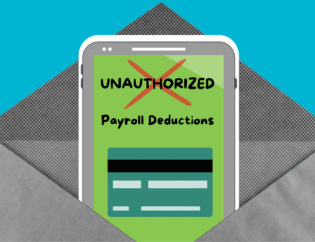January 16, 2024

Navigating Employee Deductions: What's Approved by the Secretary of State?
In the realm of employment, understanding deductions is crucial for both employers and employees. Approved by the Secretary of State, here's a breakdown of permissible deductions that play a role in the financial landscape of workers:
- Social Security: One of the fundamental deductions, Social Security contributions ensure a financial safety net for employees during their retirement years.
- Federal and State Withholding Taxes: These deductions cover income taxes at both the federal and state levels, contributing to essential public services.
- Court-Ordered Payments: This category includes court-ordered deductions like child support, alimony, and garnishments, ensuring legal obligations are met.
- Contributions to Fringe Benefit Plans: Employees can contribute to fringe benefit plans, provided it aligns with the law and is consensually agreed upon in writing or through a collective bargaining agreement.
- Purchase of US Savings Bonds: When voluntarily approved by the employee, deductions for purchasing US savings bonds offer a strategic way to invest in the future.
- Repayment of Loans or Credit Union Shares: Employees can opt for deductions to repay loans or acquire shares in a credit union, fostering financial responsibility.
- Bona Fide Prepayment of Wages: Allowing employees to prepay wages provides flexibility, enabling them to use the funds as they see fit.
- Voluntary Contributions to Organizations: Deductions for voluntary contributions to organizations like the Red Cross or United Way support charitable causes, reflecting an employee's social responsibility.
- Union Initiation Fees and Membership Dues: Deductions for union fees and dues are permissible, provided they are outlined in a collective bargaining agreement and not prohibited by law.
- Reasonable Cost of Board, Lodging, or Facilities: Deductions for the reasonable cost of facilities, meeting the requirements of section 3(m) of the Fair Labor Standards Act (FLSA), contribute to a fair and equitable working environment.
- Cost of Safety Equipment: Employees can deduct the cost of safety equipment, as long as it's not legally required to be provided by the employer. The deduction should reflect the actual cost to the employer.
Understanding these approved deductions is vital for both employers and employees to ensure financial compliance and foster a transparent working relationship. Always consult legal experts or the relevant authorities to navigate the intricacies of deductions effectively.










